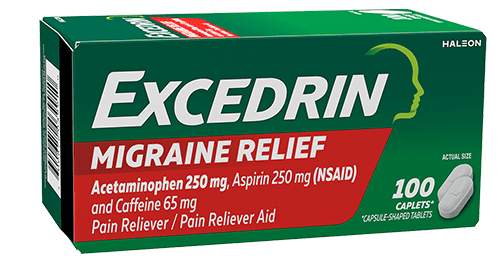We deliver to you every day from 7:00 to 23:00
The best discounts this week
Every week you can find the best discounts here.
Anti-Migraine Pills: Everything You Need to Know
Migraine headaches are a common condition that can disrupt daily life, causing intense pain, nausea, and sensitivity to light and sound. Fortunately, there are various anti-migraine pills available that can help alleviate these symptoms and provide relief. In this article, we’ll dive deep into the types of anti-migraine pills, their benefits, how to choose the right one, and the risks associated with them.

What Are Anti-Migraine Pills?
Anti-migraine pills are medications designed to reduce or eliminate the pain and symptoms associated with migraine headaches. These pills work in different ways, depending on the type of medication. Some reduce inflammation, while others target the nerve pathways that cause pain.
The goal of these medications is to either prevent migraines from occurring or to treat them once they have started. They can be found in both over-the-counter (OTC) and prescription forms, depending on the severity of your migraine and your healthcare provider’s recommendations.
Types of Anti-Migraine Pills
There are several different classes of medications used to treat migraines, and each works in a unique way. Let’s explore the most common types:
1. Pain Relievers
For mild to moderate migraines, over-the-counter pain relievers can provide relief. These include:
-
Acetaminophen (Tylenol)
-
Ibuprofen (Advil)
-
Naproxen (Aleve)
These pain relievers help reduce inflammation and provide pain relief. However, they may not be effective for more severe migraine attacks.

2. Triptans
Triptans are a class of medications specifically designed for treating migraines. They are typically prescribed when over-the-counter medications are not effective. Triptans work by constricting blood vessels and blocking pain pathways in the brain.
Common triptans include:
-
Sumatriptan (Imitrex)
-
Rizatriptan (Maxalt)
-
Zolmitriptan (Zomig)
These medications are often taken as soon as migraine symptoms start to help relieve pain, nausea, and other associated symptoms.
3. Ergotamines
Ergotamines are older medications used to treat migraines, and they work similarly to triptans. They help narrow the blood vessels in the brain and reduce migraine symptoms. Ergotamine (Cafergot) is a popular example, often combined with caffeine to enhance its effectiveness.
4. Preventive Medications
For those who experience frequent migraines, preventive medications may be prescribed. These medications are taken daily to reduce the frequency and severity of migraines. Some common preventive treatments include:
-
Beta-blockers (e.g., Propranolol)
-
Antidepressants (e.g., Amitriptyline)
-
Anticonvulsants (e.g., Topiramate)
These medications aim to alter the chemical balance in the brain and reduce the frequency of migraine attacks.
How Do Anti-Migraine Pills Work?
Anti-migraine pills work in various ways depending on the medication. Here’s how the primary types of migraine pills work:
-
Pain relievers reduce inflammation and relieve pain by targeting the prostaglandins responsible for swelling and pain.
-
Triptans work by stimulating serotonin receptors in the brain, which constricts the dilated blood vessels that cause migraines.
-
Ergotamines reduce the size of blood vessels, thereby alleviating the headache.
-
Preventive medications work by altering the brain’s chemistry, affecting neurotransmitters, and reducing overall brain excitability, which lowers the chances of a migraine attack.

How to Choose the Right Anti-Migraine Pills
Choosing the right anti-migraine pill depends on the type and severity of your migraines. Your healthcare provider can help determine which treatment is best for you. Here are a few factors to consider when selecting the right medication:
1. Frequency of Migraines
If you experience migraines often, a preventive medication may be recommended to help reduce the number of attacks. For occasional migraines, acute treatments like triptans or over-the-counter pain relievers may be enough.
2. Migraine Triggers
Certain triggers can worsen migraines, such as stress, hormonal changes, or dietary factors. Identifying and managing your triggers, alongside taking the appropriate medication, can be key in reducing the frequency of migraines.
3. Side Effects
Different medications come with varying side effects. For example, triptans can cause dizziness or fatigue, while preventive medications may cause weight gain or mood changes. It’s important to discuss potential side effects with your doctor to find a medication that fits your needs.
4. Co-existing Health Conditions
Some individuals may have other health conditions that make certain medications inappropriate. For example, people with high blood pressure may not be suitable candidates for certain medications like ergotamines or triptans. Always consult with your doctor to ensure the medication is safe for you.
The Benefits of Anti-Migraine Pills
Anti-migraine pills can offer several benefits, including:
-
Fast relief from migraine pain: Medications like triptans work quickly to stop a migraine in its tracks, providing relief within hours.
-
Reduced frequency of migraines: Preventive medications can significantly lower the number of migraine attacks, allowing for better quality of life.
-
Improved productivity: Reducing the frequency and severity of migraines can help individuals stay active and productive without the constant interruption of migraine episodes.
Risks and Side Effects of Anti-Migraine Pills
While anti-migraine pills are effective, they come with potential risks and side effects. Overuse of pain relievers, for instance, can lead to medication overuse headaches (rebound headaches). Some common side effects of anti-migraine pills include:
-
Drowsiness or fatigue: Common with triptans and preventive medications.
-
Nausea: Some medications can cause nausea, especially in higher doses.
-
Heart issues: Certain medications, especially triptans, can raise blood pressure and increase the risk of heart-related problems in vulnerable individuals.
It’s important to follow your doctor’s recommendations and avoid self-prescribing medications to ensure safe use.

FAQs About Anti-Migraine Pills
1. Can anti-migraine pills be taken with other medications?
It depends on the specific medications you are taking. Some anti-migraine pills may interact with other medications, particularly blood pressure medications, antidepressants, or other pain relievers. Always consult your doctor before combining treatments.
2. How long does it take for anti-migraine pills to work?
The time it takes for anti-migraine pills to relieve symptoms varies. Triptans can provide relief within 30 minutes to 2 hours, while preventive medications take several weeks to show their full effect.
3. Are there natural alternatives to anti-migraine pills?
Yes, some natural remedies may help alleviate migraines, such as magnesium supplements, acupressure, and relaxation techniques like yoga. However, they may not be as effective as medication for acute pain relief.
4. Can anti-migraine pills be addictive?
Most anti-migraine pills, including triptans and NSAIDs, are not addictive. However, overuse of pain relievers can lead to medication overuse headaches, which may require medical intervention to manage.
5. Are anti-migraine pills suitable for everyone?
Anti-migraine pills are generally safe for most people. However, individuals with certain health conditions, such as heart disease or high blood pressure, may need to avoid certain medications. Always consult your healthcare provider before starting any new treatment.
Conclusion
Anti-migraine pills are an essential tool for managing the pain and symptoms of migraines. With a variety of options available, it’s crucial to choose the right medication based on your symptoms, triggers, and overall health. Whether you need a fast-acting solution for an acute migraine or a preventive treatment to reduce the frequency of attacks, there is a medication that can help. Always consult with your healthcare provider to determine the best treatment plan for your specific needs.
Remember, the key to successful migraine management is not just medication, but also adopting a holistic approach that includes lifestyle changes and trigger management.











